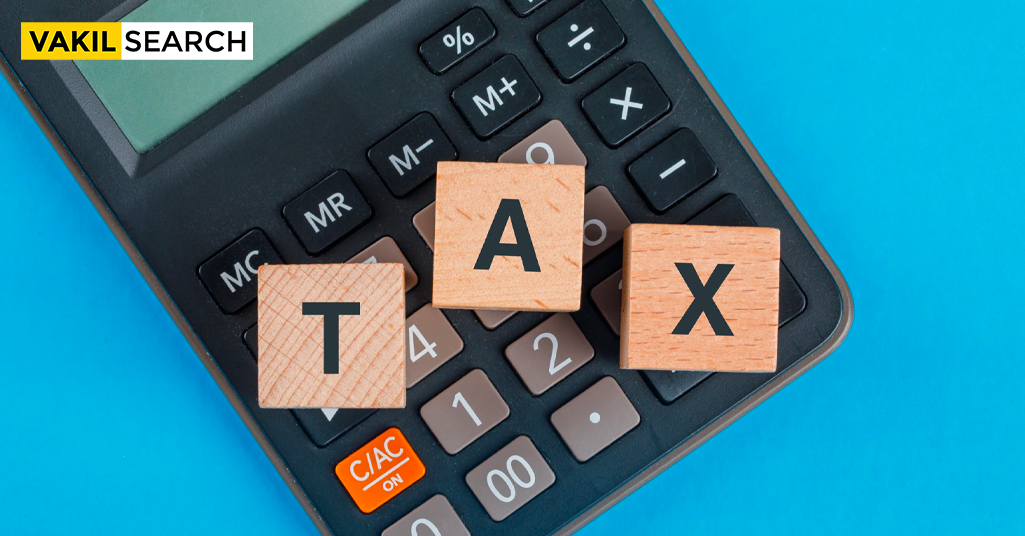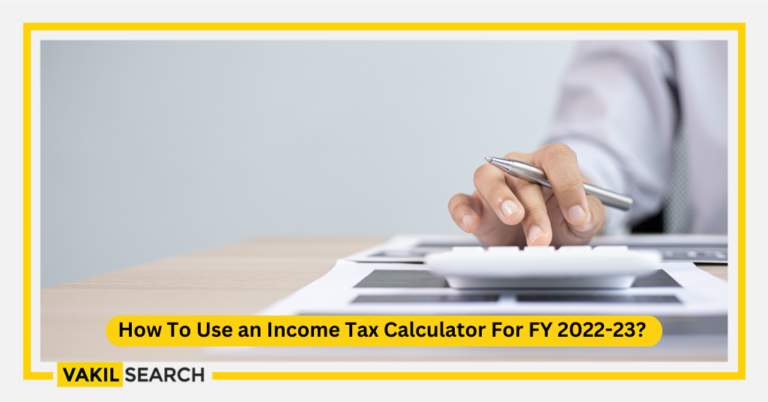The digital era has brought about tools that simplify many tasks, one of them being the calculation of income tax liabilities. Know the importance of having accurate information ready for precise results.
Maximising Your Tax Savings: How to Use an Online Tax Calculator to Optimise Your Earnings
Tax planning is a crucial part of personal finance management, and it can be challenging to navigate the complex Indian tax system.
Maximising tax savings requires a thorough understanding of tax laws, which can be difficult for the average taxpayer. Fortunately, online tax calculators can help you Optimise your earnings and minimise your tax liability.
This article will discuss how to use an online tax calculator to maximise your tax savings. We will cover the benefits of using a tax calculator, how to use it, and important points to consider when planning your taxes.
Benefits of Using an Online Tax Calculator
- Accuracy : Tax calculators are designed to accurately calculate your tax liability based on income, investments, and deductions. This helps you avoid errors in calculating your tax liability, which can lead to penalties and interest charges.
- Saves Time : Using an online tax calculator can save you a significant amount of time. You don’t have to spend hours manually calculating your tax liability, which can be especially useful if you have multiple sources of income and investments.
- Optimises Your Tax Savings : A tax calculator can help you identify deductions and tax credits that you may have missed, enabling you to maximise your tax savings.
How to Use an Online Tax Calculator?
Step 1: Gather Your Financial Information
Before using a tax calculator, you must gather your financial information, including your income from all sources, investments, and deductions. This information will be used to calculate your tax liability.
Step 2: Choose the Right Tax Calculator
Many online tax calculators are available, so it’s important to choose the right one. Some calculators are specific to certain incomes or investments, while others are designed for specific tax brackets. Make sure you choose a calculator that is appropriate for your situation.
Step 3: Enter Your Financial Information
Once you have chosen the right online tax calculator, enter your financial information. The calculator will ask you for your income from all sources, investments, and deductions. Make sure you enter all the information accurately to get an accurate calculation.
Step 4: Review Your Results
After you have entered your financial information, the online tax calculator will provide you with your tax liability. Review the results carefully to ensure all the information is entered correctly. If you find an error, correct it and recalculate your tax liability.
Important Points to Consider When Planning Your Taxes
-
Tax Deductions
One of the most effective ways to reduce your tax liability is by claiming tax deductions. Tax deductions reduce your taxable income, significantly lowering your tax liability. Many types of tax deductions are available, including those for investments, medical expenses, and education expenses.
-
Tax Credits
Tax credits are another way to reduce your tax liability. Unlike deductions, which reduce your taxable income, tax credits directly reduce your tax liability. There are many types of tax credits available, including those for education expenses, childcare expenses, and home loans.
-
Investments
Investments can be an effective way to reduce your tax liability. Certain investments, such as Public Provident Fund (PPF) and Equity-Linked Saving Schemes (ELSS), offer tax benefits. These investments can help you save tax while also earning returns.
-
Tax Planning
Tax planning is strategically managing your finances to minimise your tax liability. Tax planning should be done yearly, not just during tax season. It’s important to consider your investments, expenses, and income when planning your taxes.
-
Filing Taxes
Once you have calculated your tax liability using an online tax calculator, you need to file your taxes. The deadline for filing taxes in India is typically 31 July of each year. Filing your taxes on time is important to avoid penalties and interest charges.
-
Tax Planning for the Future
While it’s important to plan your taxes for the current year, it’s equally important to plan for the future. Tax planning for the future can help you save money and minimise your tax liability in the long run. For example, consider investing in tax-saving schemes like National Pension System (NPS) or tax-free bonds.
-
Avoiding Common Tax Mistakes
There are many common tax mistakes that taxpayers make. One of the most common mistakes is failing to claim all available deductions and tax credits. Another common mistake is filing taxes late or failing to file taxes. It’s important to avoid these mistakes to minimise your tax liability and avoid penalties and interest charges.
-
Seeking Professional Advice
While online tax calculators can be a useful tool for calculating your tax liability, seeking professional advice is always a good idea. A tax professional can help you identify deductions and tax credits you may have missed and provide personalised advice on how to minimise your tax liability.
-
Understanding Tax Laws
To effectively Maximise your tax savings, it’s important to have a basic understanding of tax laws in India. Tax laws can be complex and confusing, but understanding the basics can help you make informed decisions regarding tax planning.
-
Keeping Records
Accurate records of your income, investments, and deductions are essential for effective tax planning. By keeping detailed records, you can ensure that you get all deductions and tax credits and accurately calculate your tax liability.
FAQs on How to Use an Online Tax Calculator
How do I use an online tax calculator to calculate my income tax liability?
Online tax calculators are user-friendly tools. Typically, you start by selecting your filing status, entering your income details, and any deductions or exemptions you may have. Once all data is entered, the calculator will automatically provide you with an estimate of your tax liability.
What information do I need to input into the online tax calculator for accurate results?
To get the most accurate results, you'll need details such as your total income, sources of income (like salary, interest, rental income, etc.), any tax deductions you qualify for, and any tax credits you're eligible to claim. It's also beneficial to have information on your investment and other relevant financial details.
Can an online tax calculator account for deductions and exemptions in my tax calculation?
Yes, most online tax calculators have sections where you can input various tax deductions and exemptions that you're eligible for. This helps in providing a more accurate estimate of your net tax liability.
Are online tax calculators reliable, and how accurate are the results they provide?
Online tax calculators are generally reliable for providing a ballpark estimate of your tax liability. However, the accuracy of the results largely depends on the correctness and comprehensiveness of the data you input. It's always recommended to consult with a tax professional for detailed and specific tax advice.
Is my personal and financial information safe when using an online tax calculator?
Most reputable online tax calculators prioritize user data privacy and do not store personal or financial information. However, it's crucial to ensure that you're using a trusted platform, preferably one that uses SSL encryption. Always avoid entering sensitive personal information unless necessary and be wary of websites asking for overly personal or unrelated details.
Conclusion
Maximising your tax savings is essential to personal finance management in India. An online tax calculator can help you accurately calculate your tax liability and identify deductions and tax credits you may have missed.
However, it’s important to also consider other factors such as investments, tax planning, and seeking professional advice. By taking a comprehensive approach to tax planning, you can minimise your tax liability and keep more money in your pocket.
Vakilsearch is an online legal and professional services platform; we help with tax planning and filing. We offer expert advice and assistance to ensure you Maximise your tax savings and file your taxes accurately and on time.
Read more,










